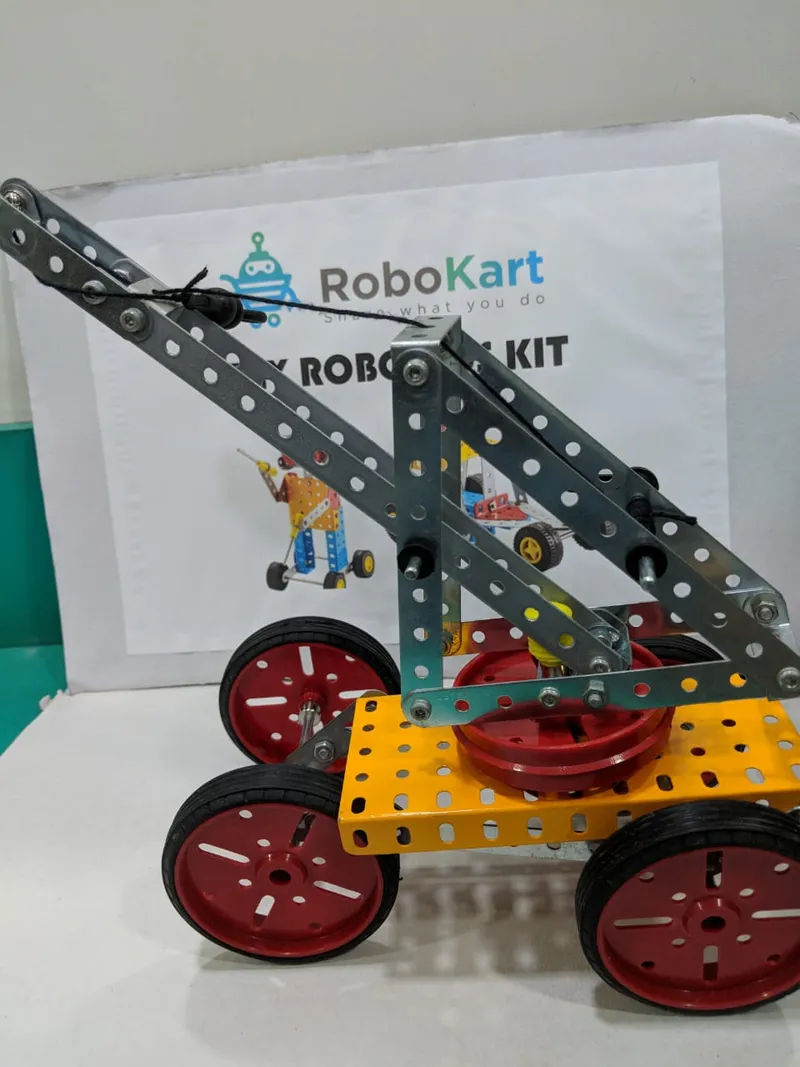This woman-led robotics learning startup wants to be the next BYJU’s
Chaitali Shah, Co-founder of RoboKart, wants children to explore, experiment and learn robotics in the right way, and thereby develop STEM in the country.

While women in STEM (Science, Technology, Engineering and Mathematics) may not be thriving in India in terms of numbers, it is heartening to note that a few young entrepreneurs are looking at this sector with new focus and determination.
In a technology-driven age, education needs cutting-edge solutions to prepare students for the future. In this context, robotics is an important tool to develop STEM in the country.
RoboKart was founded by Chaitali and Ritesh Shah in 2014, purely out of passion they developed for the subject while they were in engineering college.
While she was studying Electronics Engineering at KJ Somaiya Institute of Technology, Chaitali enrolled in a few workshops in robotics, organised by her seniors.
In a year’s time, she began taking the workshops herself. She also met her future co-founder and husband Ritesh Shah who was also a die-hard fan of robotics and teach others.
“I was in the first year when Ritesh was in his final year. After completing his degree, he joined L&T. After I finished my course, I wanted to continue in the field of robotics and started taking classes for primary school students. Ritesh was also taking robotics classes but in colleges. We decided to get together and start RoboKart, with an aim to reach more educational institutions throughout India,” says Chaitali.
Ritesh left his job at L&T and the two started up in 2014 from home. Soon, they started travelling all over India for robotics workshops, rented out office premises and hired staff. RoboKart was growing fast, and so was its revenue, and the duo came up with different ideas to expand.

Chaitali explains that this happened with setting up of robotics labs in schools and colleges. “We approached educational institutions to set up their own robotics lab which students could frequent whenever they wanted to and learn in a practical manner. Rather than just learn the theory, I feel that when you experiment, the outcome is embedded in the mind. The main motto of RoboKart is to help children explore and learn.”
When RoboKart sets up labs in schools, it also provides the components and training to students and teachers. The one-year training given to teachers ensures smooth conduct of the labs in the future.
Around this time, the duo found an opportunity in the Atal Tinkering Labs, powered by Niti Aayog - dedicated workspaces where students (from Classes VI to XII) learn innovation skills with the help of state-of-the-art equipment such as 3D printers, robotics and electronics development tools, IoT (Internet of Things), etc.
“Atal Tinkering Labs were providing funds to schools to start dedicated workspaces. We tied up with them to supply equipment for the labs. Until then, we were present in big schools, IITs and NITs but, with ATL, we branched out into government schools, even in rural areas. We have tie-ups with more than 50 schools across India and have already provided material to more than 4o schools,” she adds.
Chaitali believes RoboKart’s biggest driver is its young team – mostly fresh graduates from engineering colleges who “are super energetic and work very hard” across different domains from research and development, training to business development. RoboKart also makes robotics kits that are sold on its website.
Chaitali and Ritesh started RoboKart with their savings of Rs 2 lakh. At present, they have a team size of 20 and the annual turnover is around Rs 2-3 crore.
How does the family business work? According to Chaitali, “We are entrepreneurs and also life partners. With the business being in the family, we understand each other’s work well enough to take over when it’s needed. I also have the full support of my in-laws on the home front.”
In the future, RoboKart is looking at opening a robotics centre in every city, and also launching its own app similar to that of BYJU’s, which will have videos to help robotics lovers to learn on their own. They plan to raise funds for this expansion.
“Every month, a new competitor enters the market, but we have been able to hold our own because of the diversity of our offerings. There’s a large market for what we do as children today are more tech savvy then before. We aim to be the next BYJU’s,” says Chaitali, as she signs off.







